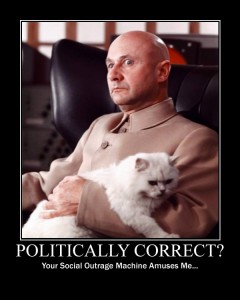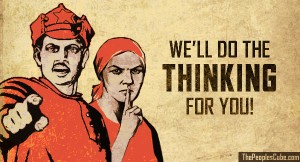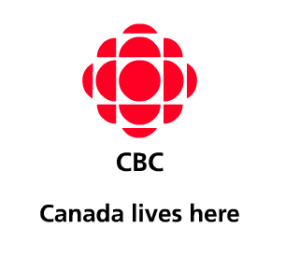
On the old version of this website, I had a special section devoted to pieces of mine were obscure or that didn’t quite make it into the publication they were slotted for. In some cases they were rejected out of hand for not conforming to the ideological slant of the publication in question. In other cases, they weren’t timely. I was even cautioned by a senior member of the now-defunct Department of Foreign Affairs and International Trade that if I kept writing things in the media that they didn’t like, I would not be eligible for funding handed out by DFAIT for scholarly research. As a result, I decided at the time to put everything up in one area of the site so the ‘soft’ censors in the media and the bureaucracy could go to hell.
I didn’t get any research money from DFAIT. But their successor organization, Global Affairs Canada, does consult me from time to time. We’ve moved from meeting in underground parking lots off Wellington St to the Pearson Building lately. We’ll see how long that lasts.
Contextually, most of the pieces were written between 1998 and 2006, in other words during the Kosovo war, then to 9-11, and then into the first phases of the war in Afghanistan. During the period the Usual Suspects kept trying to insist that Canada was the ‘world’s peacekeeper,’ despite evidence to the contrary: CF-18s and tanks to the Balkans, SOF and light infantry to Afghanistan, and so on. I was pleased to see that the 2005 national security policy statement by the Martin Government reflected (if it did not directly lift), numerous themes from my writings during this period (see the Canadian National Security Policy section). Of course, nobody is allowed to take credit for anything in Canada because there’s no “I” in bureaucracy.
When I was revising the site I consulted several trusted agents on matters relating to content. One pointed out that recently some mail-order diploma mill in Canada had some screeching anonymous professor who, apparently, built a course around attacking me for my “narrow” and negative depiction of the Congo’s only saint, Patrice Lumumba. That fact alone warranted retention of “Provocations” in its original form. My trusted agents unanimously agreed that I should not self-censor and ensure the pieces have a rightful place in the pantheon of unpublished democratic debate. Even if they have typos. Or were tinged with dead pan sarcasm.
Remember before you fulminate: this is a joke. This is all a joke. In the Edward Blake sense.

Provocations Library
The assassination of Canadian diplomat Glyn Berry on the eve of the Canadian federal elections in January 2006 activated debate in why Canada was commiting more troops to Afghanistan. This op ed appeared in the Ottawa Citizen on 16 January 2006 and gives my explanation for Canadian motives vis-a-vis our involvement in the war in Afghanistan. One senior Canadian Forces officer wrote to me and said,
” I wanted to answer your E-mail just to let you know what I think. For what it’s worth, I think that your article is the best summary of the rational behind Canadian support to Afghanistan. I have actually saved a copy to my stick in order to have it at hand when I need to make a point about why we’re in Afghanistan. I’m sure I’ll be required to quote you many times in my future job to motivate my troops and to make them understand why we have to go out there and deal with these bad guys. I have a suggestion for you. I believe your article is so good that it should be translated in French and send to as many Québec’s papers as possible. We, the French Canadian population, are so disconnected from this reality that a good article like yours could contribute in explaining the rational behind Canada’s efforts in Afghanistan. They need to hear the other side of the story and not only the side telling them that we don’t belong in Afghanistan and that we should pull out.”
“Thin Red Line: Canada in Kandahar.”
Less than three days later, the Toronto Star, a paper I have little in common with ideologically, asked me to contribute to their debate on Canada in Afghanistan. This was my response. The TORSTAR version had a different title and was juxtaposed with a rather surreal article by a journalist who claimed that there was “nostalgia” for Taliban justice in Kandahar. I, of course, beg to differ.
Once again, the haphazard commitment of Canadian troops is in the offing, this time to the Sudan. I have no objections to committing Canadian forces but there have to be good, defendable reasons. Domestic political expediency doesn’t count as one of those.
“Realistic Intervention, Finally.”
About time! Canada has a national security policy document that finally recognizes the existence of Stabilization Operations, accepts that lethal force and power are constants in our universe, and that the Canadian Forces will be geared towards intervention operations. The main issue is, is the government serious enough to pay for it?
“The Gentle Application of Soft Power.”
Here, for the first time, is the infamous “Gentle Application of Soft Power” piece. When the Army Doctrine and Training Bulletin was launched in 1998, there was an implication that provocative articles were welcome. At that time, the then-Foreign Affairs minister Lloyd Axworthy and his minions had jammed the “Soft Power” policy down the throats of the Department of Foreign Affairs and the rest of the country. “Soft Power” was, for many, a thinly-disguised attempt to decrease the size and capability of the armed forces so that it could do nothing more than constabulary tasks ie: no warfighting. Numerous people inside the Department of National Defence were incensed. I was too. Others, like political scientist Kim Nossal, were gently criticizing Axworthy in the media and getting vicious ad hominem attacks back from Axworthy himself, which was rather surprising in a free, open, and democratic country. “The Gentle Application of Soft Power” was my scathing take on things. Major John Grodzinski, the outstanding editor of the ADTB, valiantly tried to publish the piece, but the then-Major General Mike Jeffrey (later Chief of the Land Staff) believed that the Army and its masters weren’t quite ready for it (if they ever were). Ce le vie. Some bootleg copies made the rounds, but here is the original text.
I was asked by the Conference of Defence Associations to write an article articulating the state of the Canada-US relationship in the wake of the Chretien government’s refusal to participate in the war against the Hussein Regime in Iraq. I structured it as a letter to the PM.
This was my positive endorsement of the decision to deploy Canadian troops to participate in the NATO-led Operation ESSENTIAL HARVEST in Macedonia in the late summer of 2001.
“Dithering Gets Us Nowhere or: Games Politicians Play”
My main concern in the fall of 2002 in the run-up to Operation IRAQI FREEDOM was that Canadian troops needed to get into theatre in a timely fashion to acclimatize so they could fight effectively and this was dependent on the Chretien government getting on with making a decision and get off the fence. We had seen in 1991 a lot of dithering which precluded Canadian participation and it looked like it was happening all over again eleven years later.
Letter to the Editor: Afghanistan
In the spring of 2002, when Canada was preparing to commit forces to Operation ENDURING FREEDOM in Afghanistan, there was this residual belief amongst some pundits and in the population that Canada didn’t fight wars and just “did” peacekeeping. Obviously, we could not allow our warfighters to be constrained by bureaucrats and lawyers operating with a “peacekeeping” mentality. That would have been a perscription for disaster.
“Patrice Lumumba: Dangerous Revolutionary.”
While I was completing Canada and UN Peacekeeping: Cold War by Other Means a movie was released dealing with the assassination of Patrice Lumumba in 1961. I was quoted in an article by Isabelle Vincent who thought the movie was a bunch of sentimental pro-Communist bullshit. Some aging Marxist at a university in Ontario sent an eight-page letter into the National Post “denouncing” Isabelle and me as “fascists.” The National Post wisely didn’t waste valuable space on his diatribe. This was my response.
“The Canadians at Medak Pocket: Fighting For Peace.”
In 1993, a Canadian infantry battalion serving with UN forces in Croatia exchanged fire with the Croatian Army. This deadly incident was hushed up at the time, but I wrote a book about it called Chances for Peace. I had trouble finding a publisher in 1995 and the book was finally published in 2002. When interest in Medak grew in 2002, Maclean’s magazine asked me to pen an article, which they ultimately did not use. Here it is.
“Peace Operations in the Middle East: Warnings from the Past.”
This Op Ed appeared in the National Post after I heard about a “trial balloon” launched by the Chretien government: they wanted to “solve” the Middle East problem, and were exploring the possible deployment of some form of “peacekeeping” force to the West Bank. As an historian who had just completed the first history of Canadian peacekeeping, I knew we had tried that before in the 1950s and 1960s and it didn’t work. Fortuntely, the Chretien government looked elsewhere for glory.
Canadian-American relations are a favourite bug-bear of the cultural elite in Canada. When the United States announced the formation of Northern Command, there were miffed noises emanating from various quarters. This Op Ed, which appeared in the Ottawa Citizen, was an attempt to clarify what NORTHCOM was, and how Canada should relate to it. Basically, Canada had to get off its ass or the Americans were going to protect us.
The danger of too much emphasis on peacekeeping in the Canadian public mind and in Canadian culture was that it constrained the government (or could be used by factions in the government) when real military force had to be used to protect Canadian interests. This article appeared in Maclean’s magazine in a slightly different form, but my intent was generally adhered to. Here is the original draft.
Review of David Rieff’s A Bed for the Night: The Crisis of Humanitarianism
This book review appeared in the National Post. As one who had seen the highly manipulative nature and perfidity of Non-Governmental Organizations (NGOs) in the field, I was interested in Rieff’s take which was less than laudatory. I agreed with him.
Francine Ducros, the notorious “communications” director of the Chretien government’s Prime Minister’s Office who was fired for publicly calling the American President a moron, screamed at me on the phone when I called in to correct her staff’s output relating to the history of Canadian overseas military deployments. This was my public corrective.
“Enough is Enough: Are We Canadians or Victims?”
An Op Ed that was considered too provocative, I was responding to the “poor me” defeatism that appears all too frequently in the Canadian media and particularly the Canadian education system, during times of national crisis.
“Et Tu, Lloyd?: Honourable Men, Lions, and Human Security.”
Considered too provocative by a major Canadian newspaper, I was merely welcoming “Soft Power” proponent and former foreign affairs minister Lloyd Axworthy to the wild world of Academia after he decided that he couldn’t take it any more after the Kosovo crisis of 1999.
“Johnny Canuck versus Ookpik.”
A draft of an article which ultimately appeared in truncated form in the Kingston Whig Standard attacking “Soft Power” and “Feel Good-ism” and warning of a dangerous world where Canada had to be prepared to use violent military force. Note that this was before the events of 9/11.
“Canada, the UN and NATO: Context is Everything.”
During the Kosovo War of 1999, the usual suspects raised the usual questions about the need for UN legitimacy for military action and employed the canard “NATO bad, UN good.” My response in the National Post sought to explain that the two were not as separate as commonly believed.
This Op Ed appeared in the National Post the day after the 9/11 attacks. The three authors were profoundly affected by the events of that day and this piece reflected our anger and concern for the future.
A version of “A New War” appeared after 9/11 in the Kingston Whig Standard. Its purpose was to re-align public thinking about what “war” constituted in the post-9/11 world and how that might affect Canada. Predictably, it was attacked for being “jingoistic” by the usual suspects.
This Op Ed appeared in the National Post in August 2003. I had returned from Afghanistan earlier that summer to discover that the Chretien government decided to send troops to ISAF in Kabul rather than Operation ENDURING FREEDOM or to Iraq. My primary concern was that the decisionmaking process in Ottawa had gone off the rails and that legitimate military advice on the conditions in Afghanistan and the lack of strategic rationale for an ISAF commitment was being ignored by the Prime Minister’s Office. This in turn put Canadian soldiers at risk needlessly and as a Canadian citizen, I was obligated to ensure that the proper context to the situation in Afghanistan was available for public consumption. However, some career-oriented officers standing ready to capitalize from a new deployment to an exotic land spread the word that I was attacking the Army as an institution, which was not the case at all.
In the Fall 2003 run-up to the Iraq War, a flood of disinformation was unleashed by anti-American elements in the media and in academia. The purpose of this disinformation was to muddy the waters and convince the Canadian public and its elected leadership not to participate in any military action against Iraq. As usual, I was obligated as a historian to ensure that the proper context of Canadian military involvement in the region was available for public consumption. “The Iraq War” laid out in detail Canada’s military operations in the region going back to 1979 and that any further Canadian military action was an extension of existing policy. A version of “The Iraq War” appeared in Maclean’s magazine.
Intended for The Weekly Standard in 2003, this article was my response to the critics who were blasting away at Operation ENDURING FREEDOM in Afghanistan with spurious Vietnam analogies. Having just been on the ground, I was in a position to refute this superficial thinking and “Afghanistan Now?” was the result.
“The Beast is in its cage: And so is Saddam Hussein”
I was somewhat perturbed by the Canadian Broadcasting Corporation’s coverage of the capture of Saddam Hussein in early 2004. I penned this Op Ed but my usual journalistic patrons were full up that and the following days… One could be pardoned for thinking that the CBC and its minions actually felt sorry for the Butcher of Baghdad, but hey: Hitler had feelings too, right?
Just remember……


(thanks to the comrades at “The People’s Cube” who put the “U” in GULAG. And don’t forget your shovel, thought criminal 8776544. We recorded you clicking on these links and will report you to your university’s Kommisar…..)